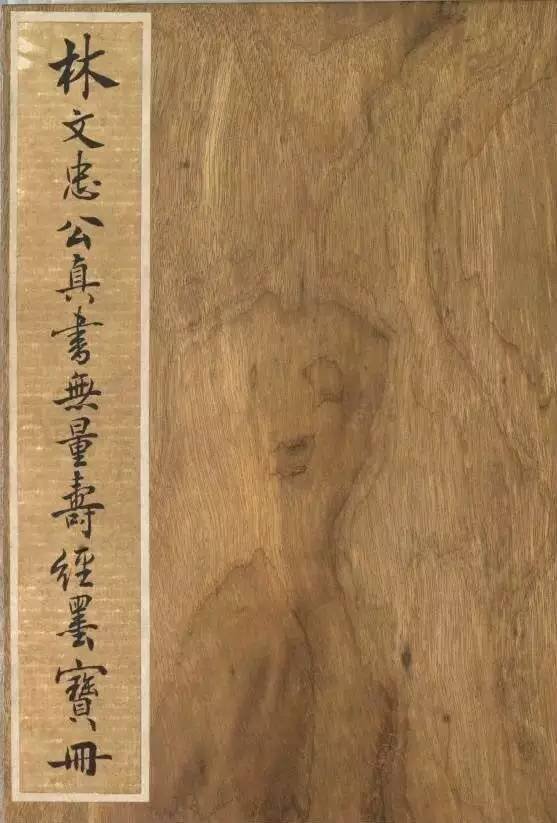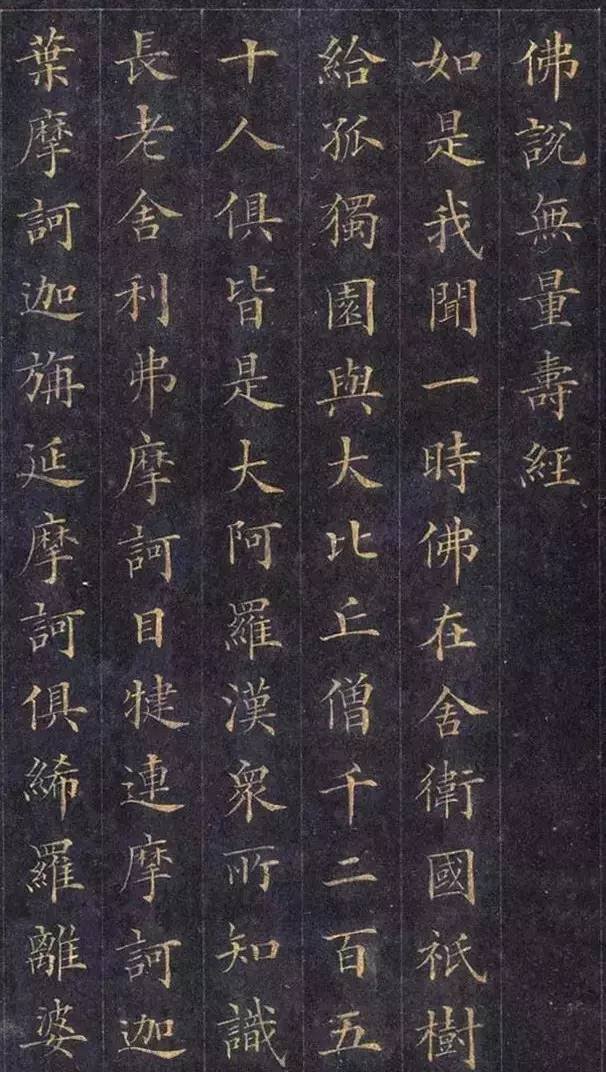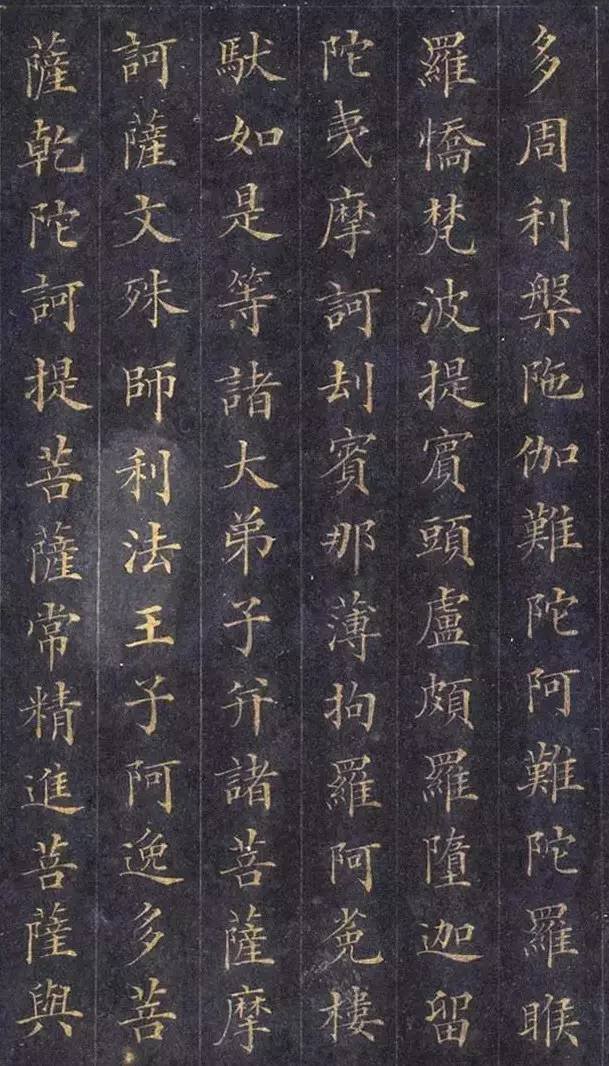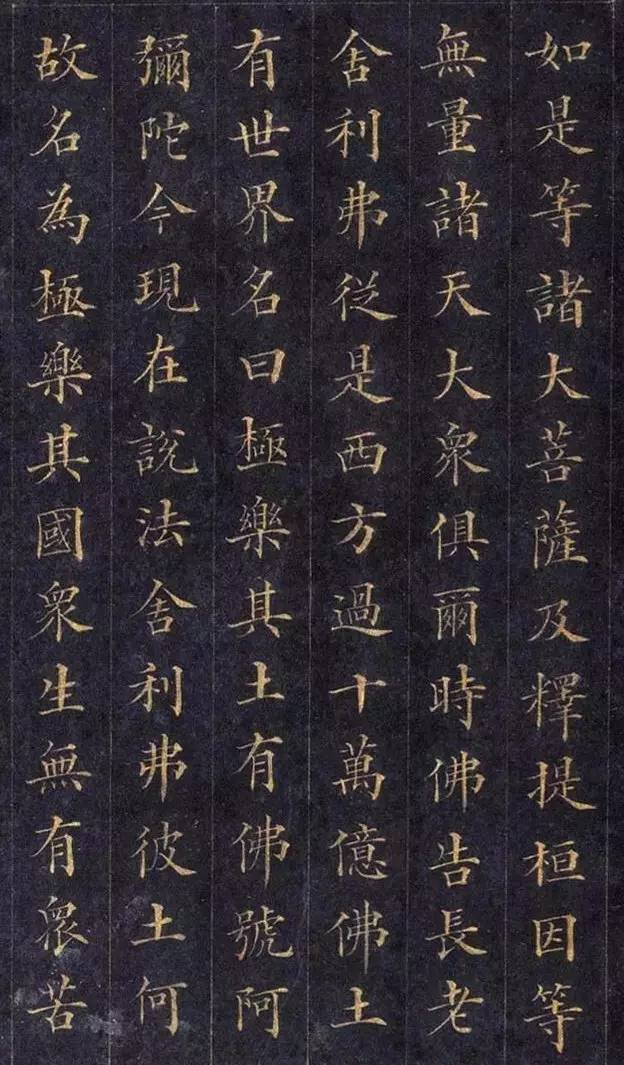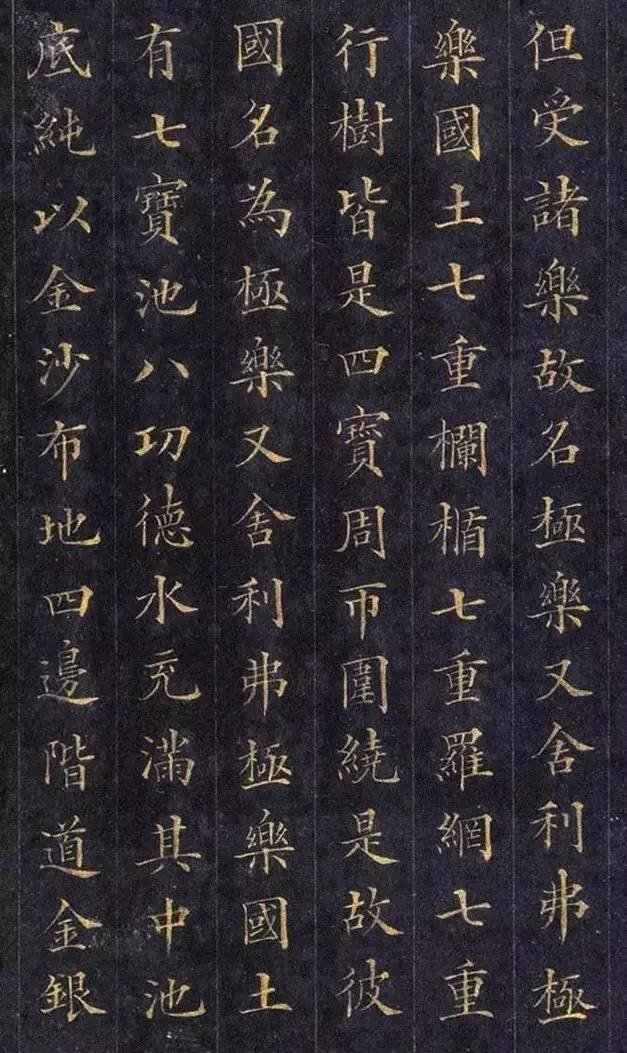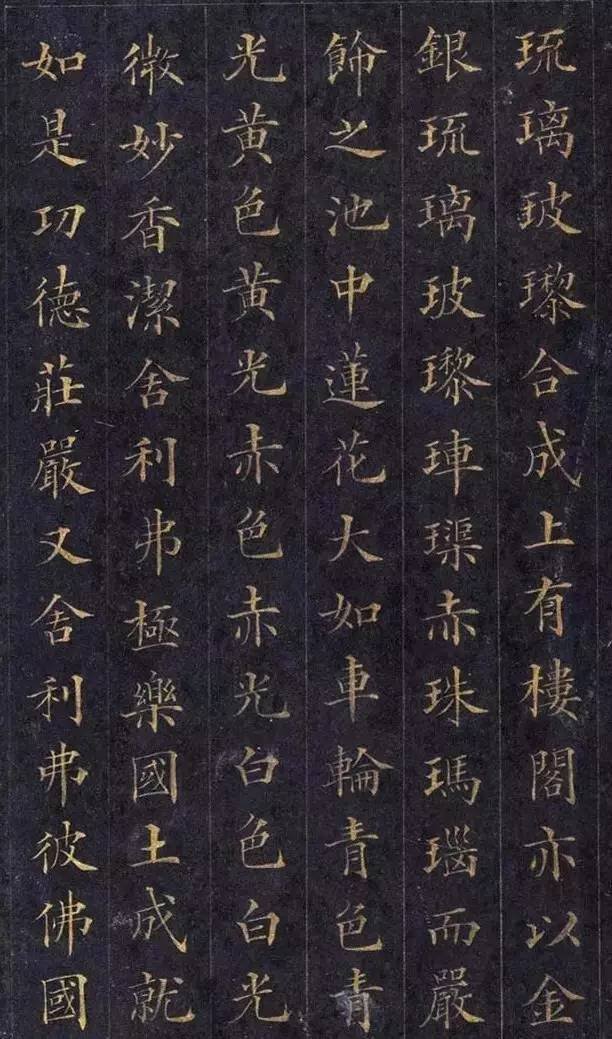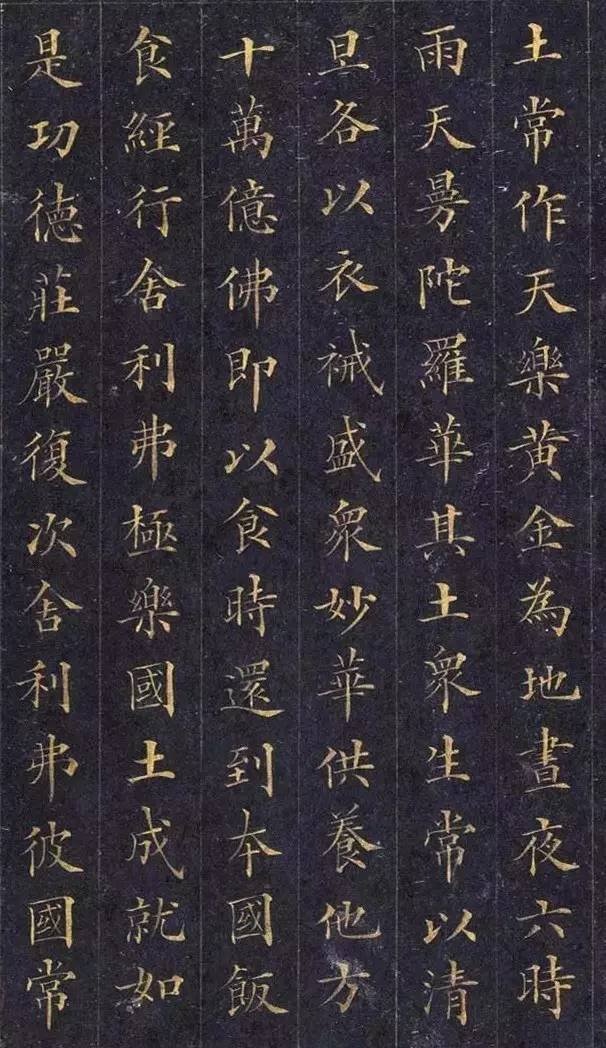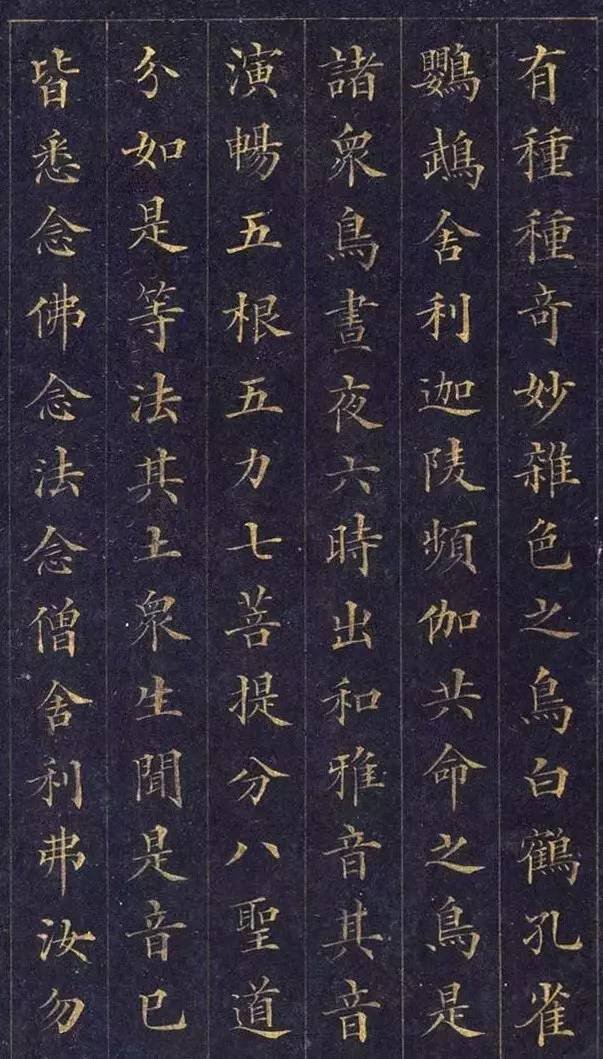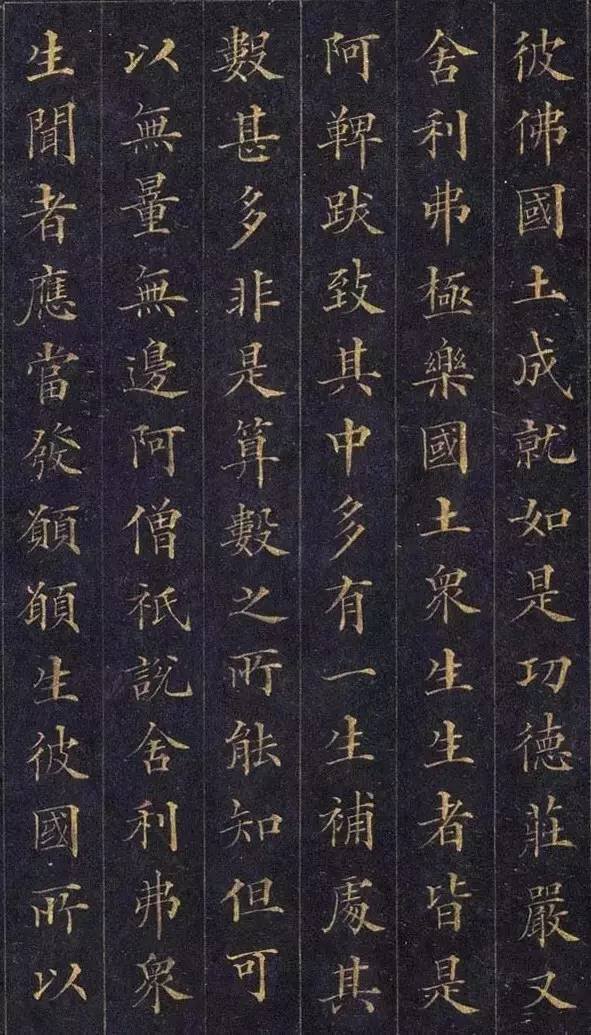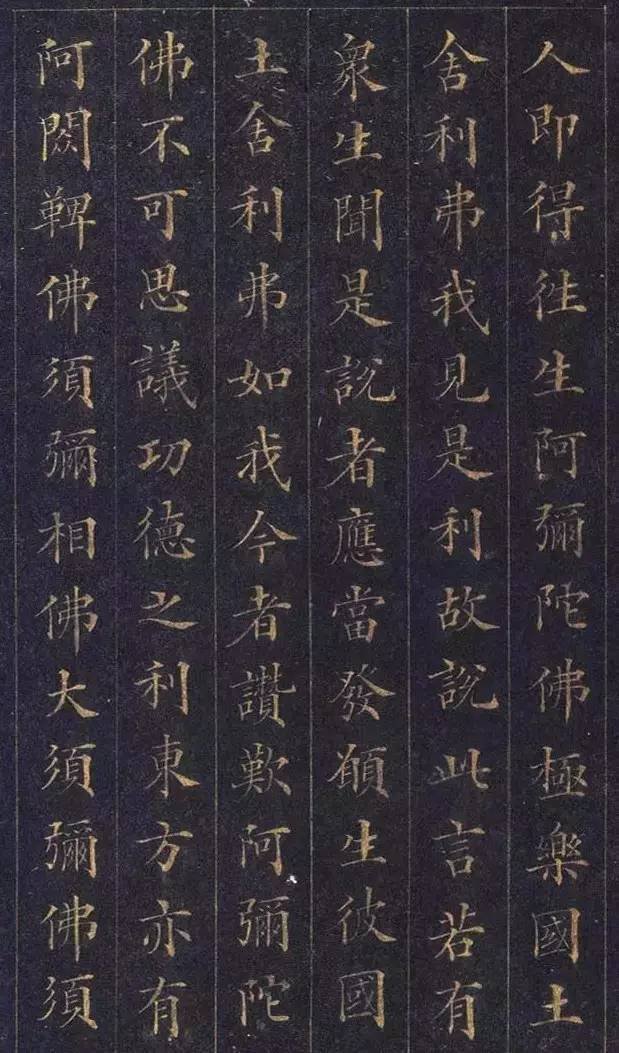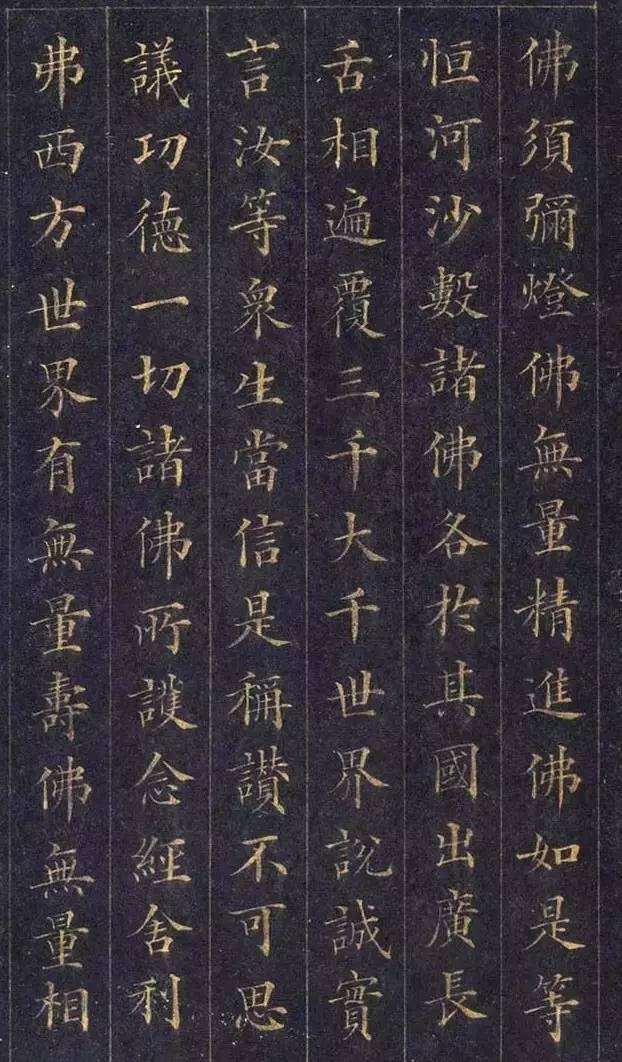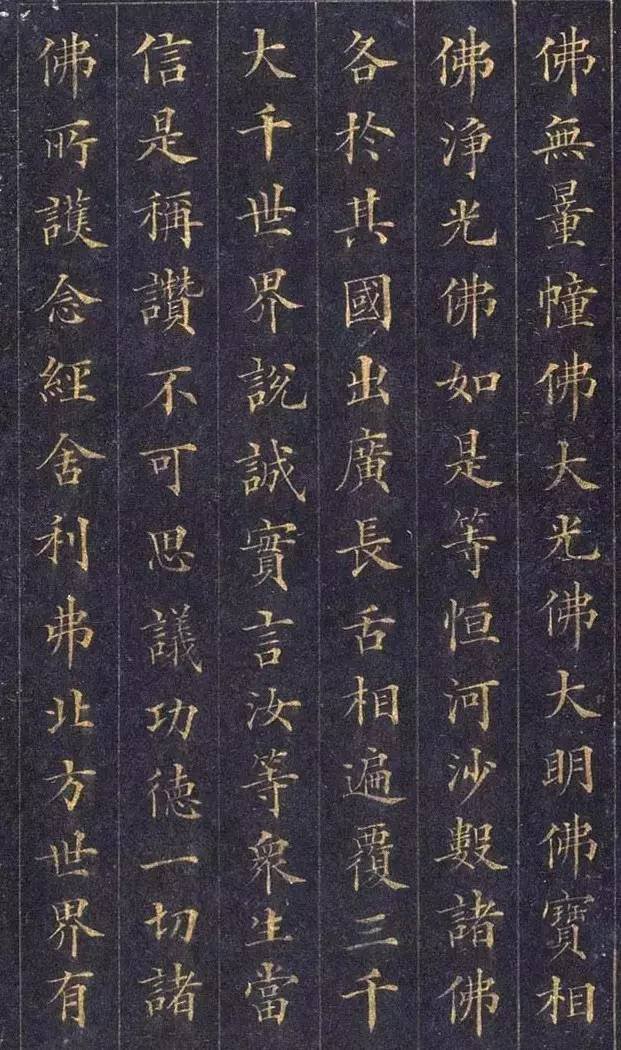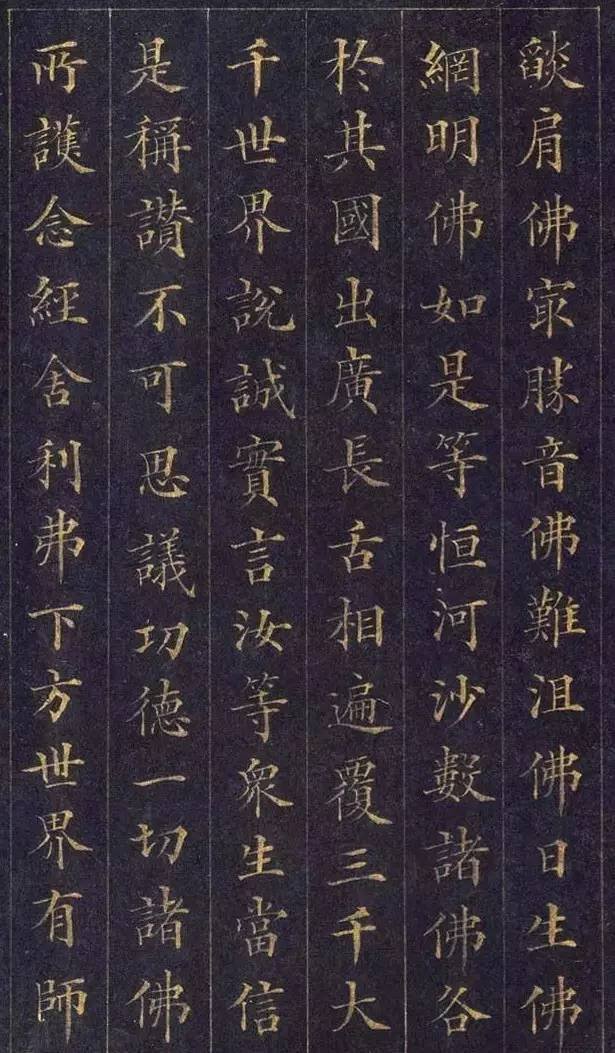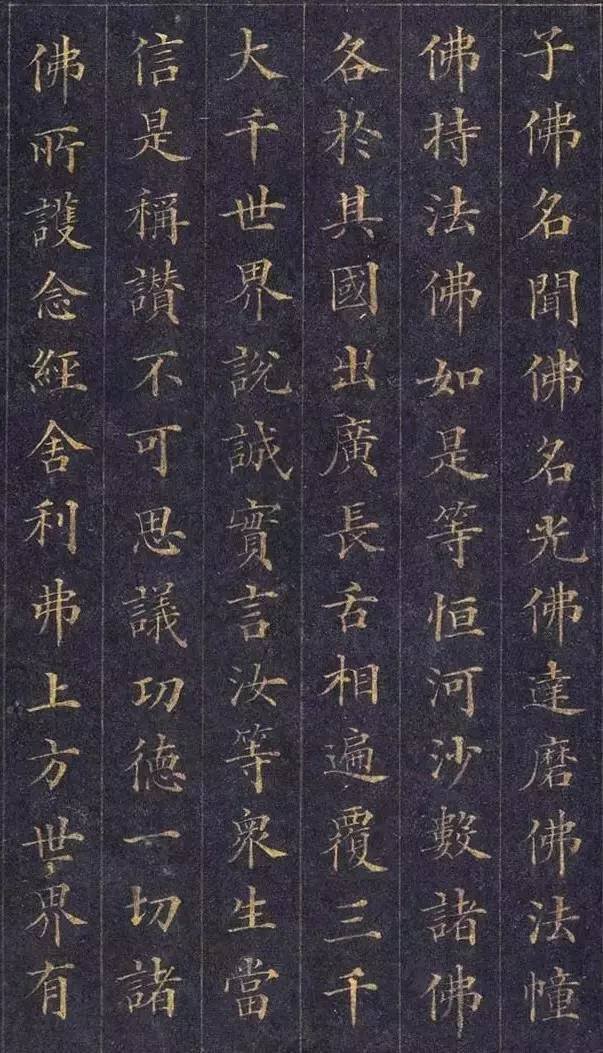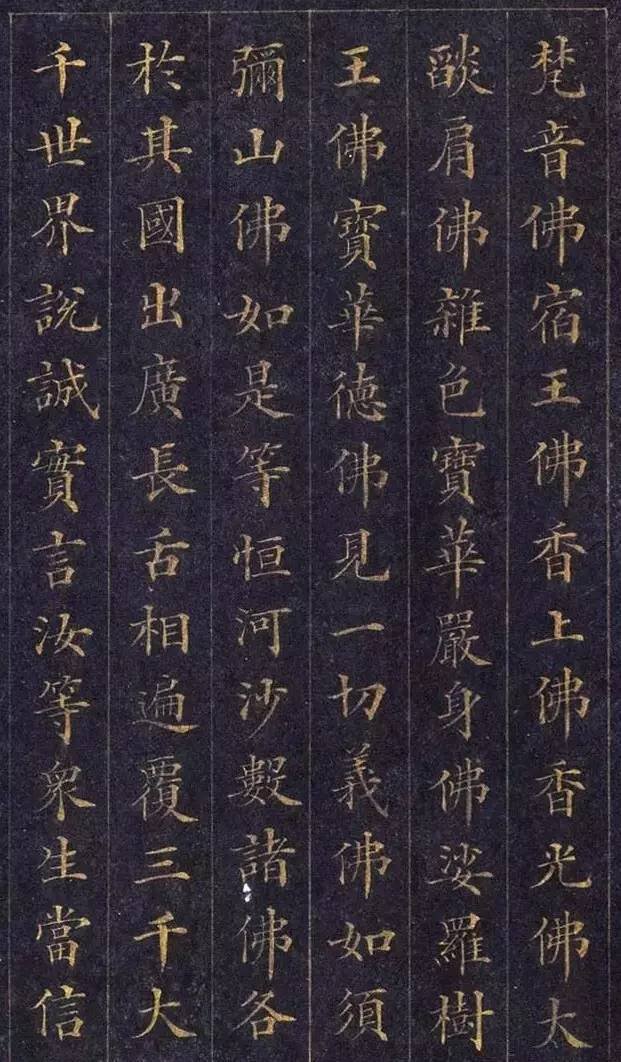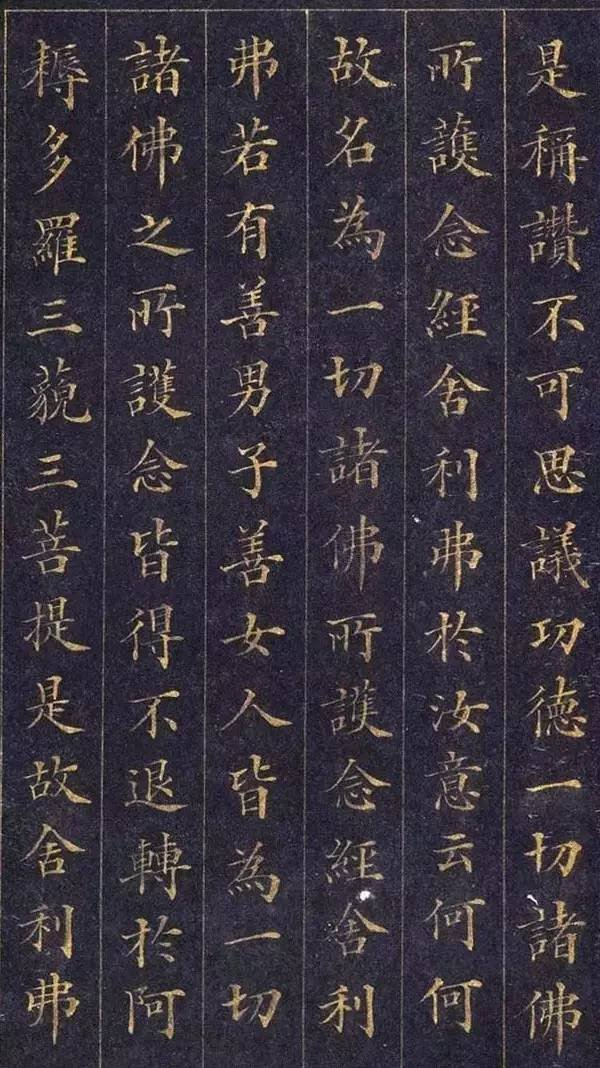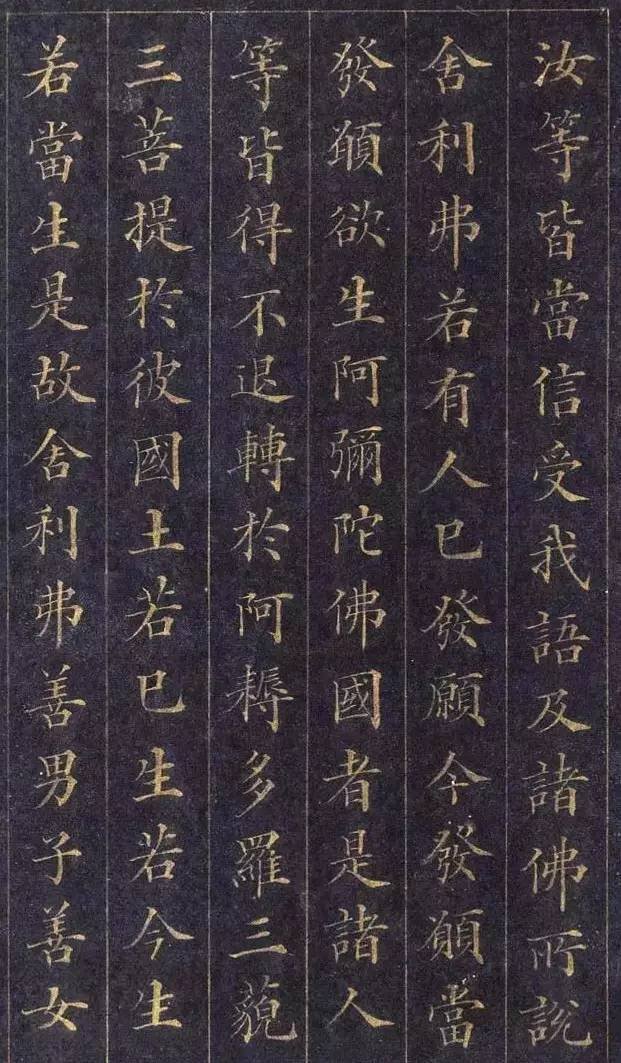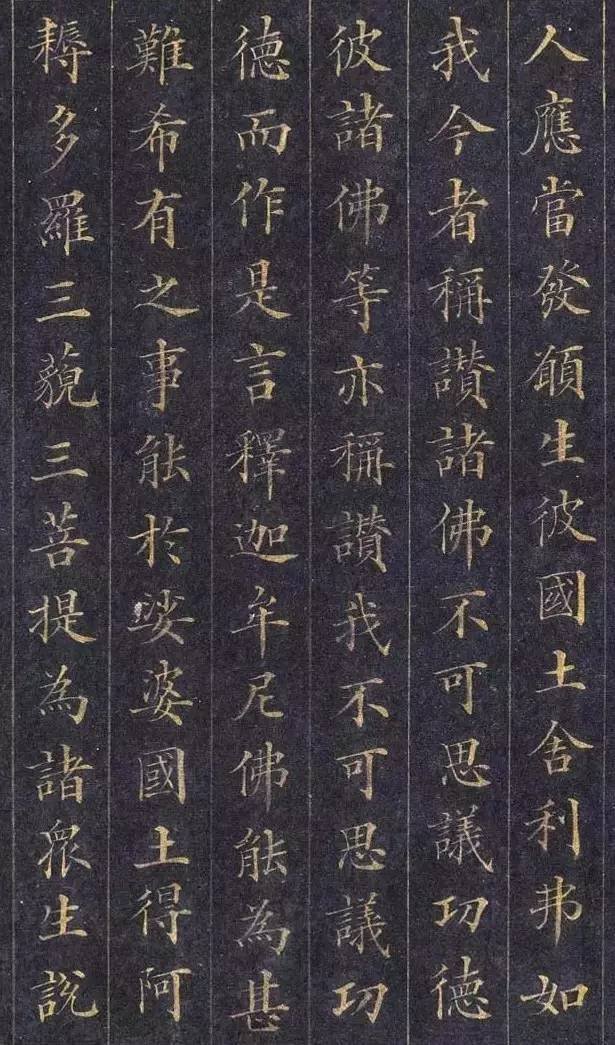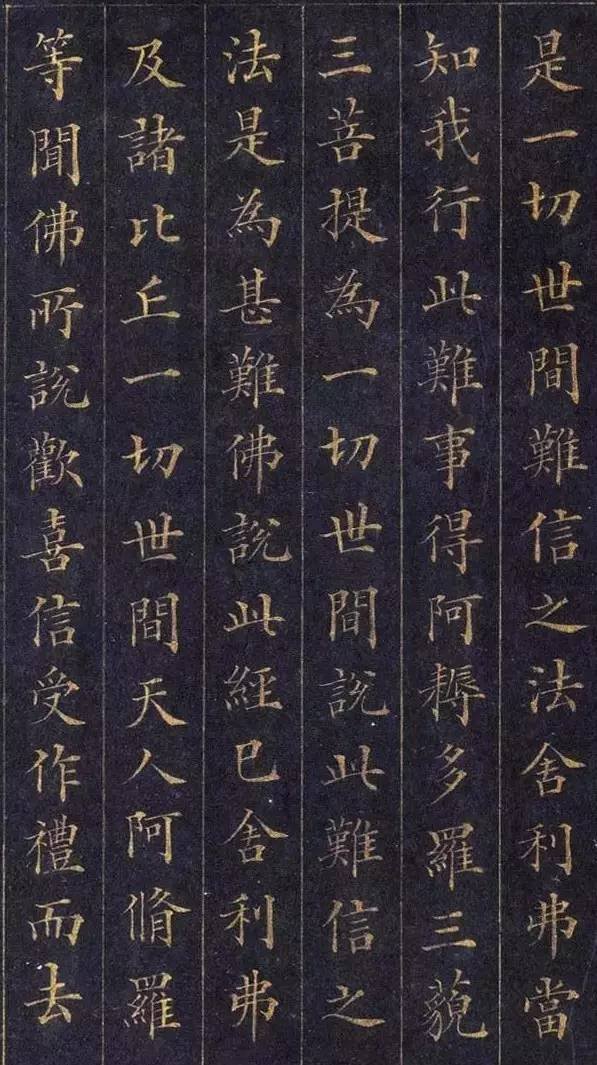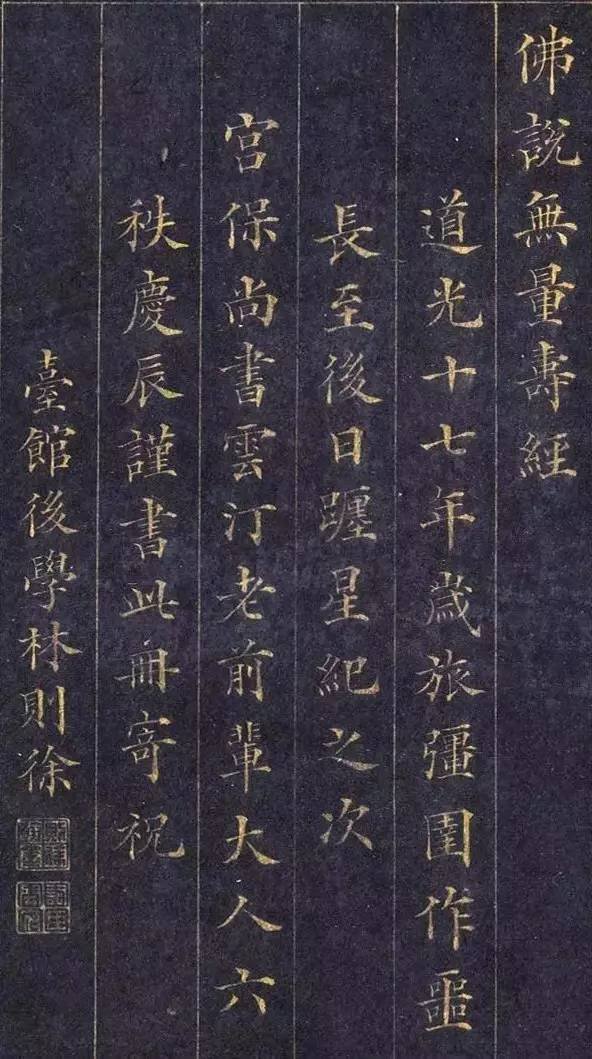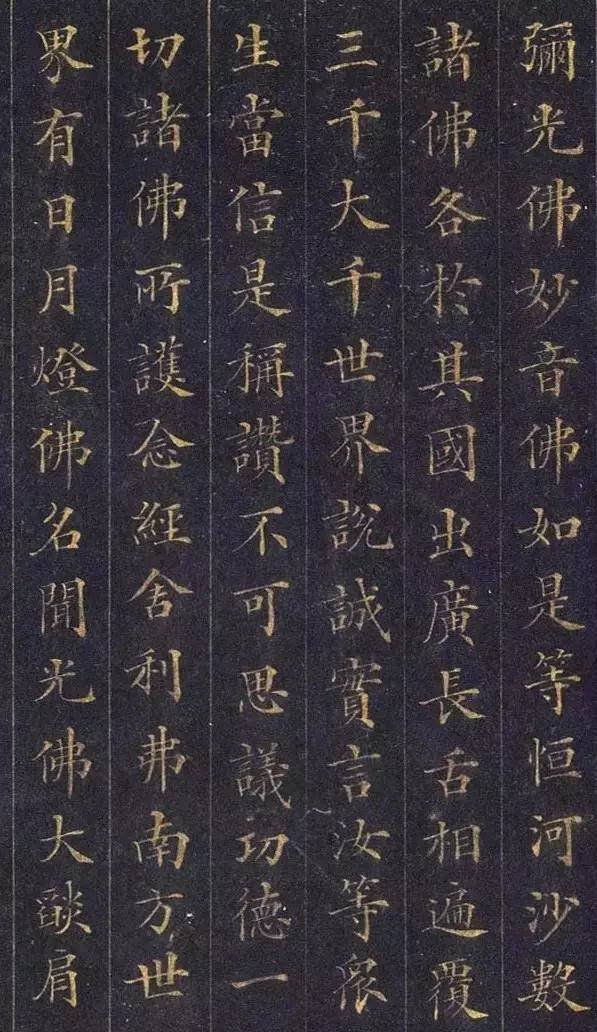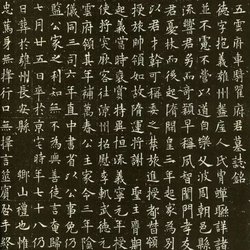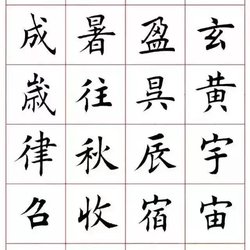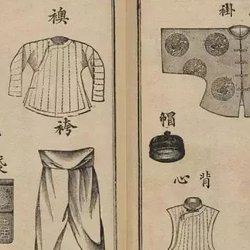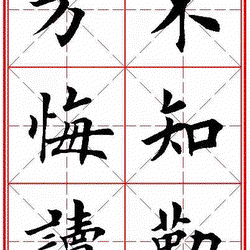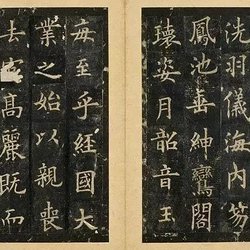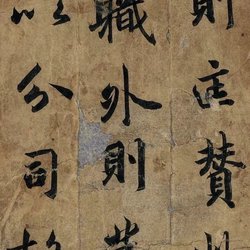If there was no opium eradication in Humen, Lin Zexu might just be a good official in the Qing Dynasty. He was diligent, honest, told the truth, and did practical things. He was a role model for good cadres during the Daoguang period. In the seventeenth year of Daoguang's reign, that is, 1837, Lin Zexu was 52 years old. In the first month of this year, he was promoted from governor of Jiangsu to governor of Huguang, officially changing from the second-in-command at the provincial and ministerial level to the first-in-command. However, after this promotion, he began to focus on the British opium, and it was not until two years later that the matter reached the climax of modern history.
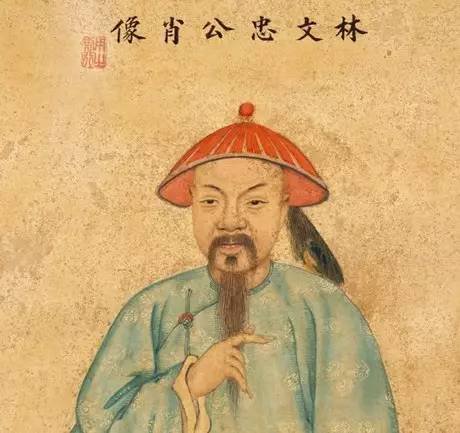
This year, he wrote this small regular script "Buddha Speaks of Infinite Life Sutra" to celebrate the birthday of his old leader and big brother, Gong Bao Shangshu Tao Shu. When it comes to Tao Shu today, not many people know about it. However, his reputation in the court at that time was much greater than that of Lin Zexu, and his official position was always above that of Lin Zexu. When he was the governor of Liangjiang, Lin Zexu was the governor of Jiangsu. The two teamed up to manage floods in Jiangsu, and they were quite popular politically.
This small regular script written by Lin Zexu is very rigid, with strong bones and full posture. It can be called a masterpiece. After writing this in regular script and sending blessings to the old leader, Lin Zexu went from an ordinary official to a national hero. Two years later, in June 1839, Lin Zexu died in Humen, and Tao Shu died of illness in the Liangjiang Supervisory Office.Lin Zexu Xiaokai's "Buddha Speaks of Infinite Life Sutra"
